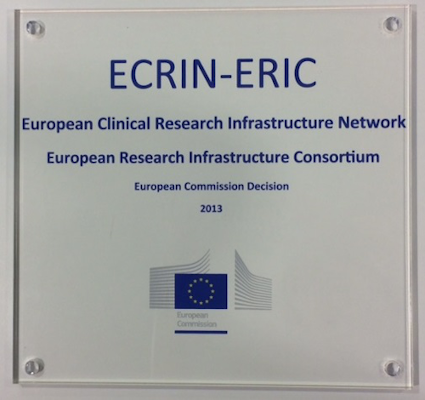History of ECRIN
 2004: ECRIN was created in 2004 with the goal of supporting mostly academic sponsors and investigators across Europe to overcome the barriers to multinational clinical research.
2004: ECRIN was created in 2004 with the goal of supporting mostly academic sponsors and investigators across Europe to overcome the barriers to multinational clinical research.
2006: ECRIN was listed on the 2006 European Strategy Forum on Research Infrastructures (ESFRI) roadmap.
2013: ECRIN was attributed the European Research Infrastructure Consortium (ERIC) legal status, enabling member and observer country contributions, which sustain the organisation’s core.
2020: ECRIN was awarded its ISO 9001:2015 certification on the 30th of November 2020, by the French Standards Association (AFNOR).
![]() Discover ECRIN Quality and ISO Certifcation
Discover ECRIN Quality and ISO Certifcation
Over the years, ECRIN has become involved in several additional infrastructure development projects and has added many new multinational clinical trials to its portfolio. Support for the conduct of multinational clinical trials remains its core activity.
![]() Discover ECRIN’s project history below.
Discover ECRIN’s project history below.
ECRIN’s project history
From 2004 to 2005, ECRIN led its first project, ECRIN Reciprocal Knowledge Programme or ECRIN-RKP (funded by European Union Framework Programme 6, FP6, "Societal challenges” health sub-programme), involving six countries.
ECRIN-RKP aimed to determine bottlenecks to multinational collaboration in academic clinical studies. These were identified as discrepancies in the national organisation and practice of clinical research, as well as the inability of academic institutions to fulfil sponsors’ responsibilities in foreign countries.
The ECRIN-RKP pilot project led to the definition of a strategy for the creation of a pan-European infrastructure for clinical research, which would become the basis for ECRIN’s future structure. The idea was to create an institutional body to facilitate multinational clinical trials by linking national scientific partners (networks of clinical trial units, CTUs) across Europe and by providing management and other services to investigators and sponsors.
Starting in 2006, ECRIN began its second project, ECRIN Transnational Working Group or ECRIN-TWG. This project was funded by FP6, involved 10 countries, and aimed to develop procedures and guidelines for investigators and sponsors involved in multinational clinical research in Europe.
The project involved analysis of existing data management tools, training resources, and national regulatory and ethical requirements, leading to recommendations and guidance documents. As part of the project, ECRIN began to develop common monitoring tools to enhance collaboration. It also started to establish networks of academic clinical trial units across Europe.
Another key development during this time was the inclusion of ECRIN, in 2006, on the European Strategy Forum on Research Infrastructures (ESFRI) roadmap. This gave ECRIN additional legitimacy and visibility, and paved the way towards a sustainable future.
ECRIN’s third project, ECRIN Preparatory Phase for Infrastructure or ECRIN PPI (funded by European Union Framework Programme 7, for which ECRIN was now eligible given its ESFRI status) was launched in 2008 with 14 countries. The goal was to define the necessary organisational and legal structure for ECRIN to support the establishment and implementation of multinational clinical trials in Europe. In short, it aimed to develop ECRIN’s business plan and legal status.
The project validated ECRIN’s proposed organisation, whereby the Paris-based Core Team oversees the work of European Correspondents (EuCos), situated in Member and Observer Countries; EuCos manage the clinical trial portfolio and support services in their respective countries in coordination with national scientific partners. As part of ECRIN PPI, ECRIN began to provide services to multinational clinical studies in 2009. It also established its Scientific Board and started data centre certification.
In 2012, ECRIN embarked on its fourth project, ECRIN Integrating Activity or ECRIN-IA. This project was funded by FP7, involved 23 countries and covered three main areas of expertise: rare diseases, medical devices and nutrition. Objectives included: structuring national scientific partners; developing capacity to manage multinational trials; strengthening user communities; developing databases and toolkits; fostering patient communication; and conducting pilot multinational clinical trials. Originally planned for four years (2012 to 2015), the clinical trials work package was extended until 2017.
In parallel, ECRIN continued to develop its service offer, providing various forms of support to European clinical trials. It established standards for the acceptance of projects applying for such services.
In 2013, ECRIN was awarded the status of European Research Infrastructure Consortium (ERIC) by the European Commission, a legal status to facilitate the establishment and operation of research bodies of European interest. This was a key development as it ensured ECRIN’s financial sustainability.
In 2016, ECRIN was designated an 'ESFRI Landmark' on the ESFRI Roadmap 2016. ESFRI Landmarks are RIs that were implemented or started implementation before 2015 and are now considered ‘pan-European hubs of scientific excellence, generating new ideas and pushing the boundaries of science and technology’. The attribution of Landmark status is a major accomplishment for ECRIN as it reflects its valuable and long-term contribution to the European research landscape through the provision of high-quality scientific and managerial services.
ECRIN also assumed the coordination of the Paediatric Clinical Research Infrastructure Network (PedCRIN), which brings together ECRIN and the European Paediatric Clinical Trial Research Infrastructure (EPCTRI) to develop capacity for multinational paediatric clinical trials. Launched on January 1st, 2017, the four-year project will bridge paediatricians and other partners across Europe (and internationally) to combine resources and expertise to conduct and manage robust studies, while minimising risk and protecting the child participants. This project is a particularly exciting development for ECRIN, as it will enhance our capacity to provide trial management services to multinational paediatric clinical trials.


